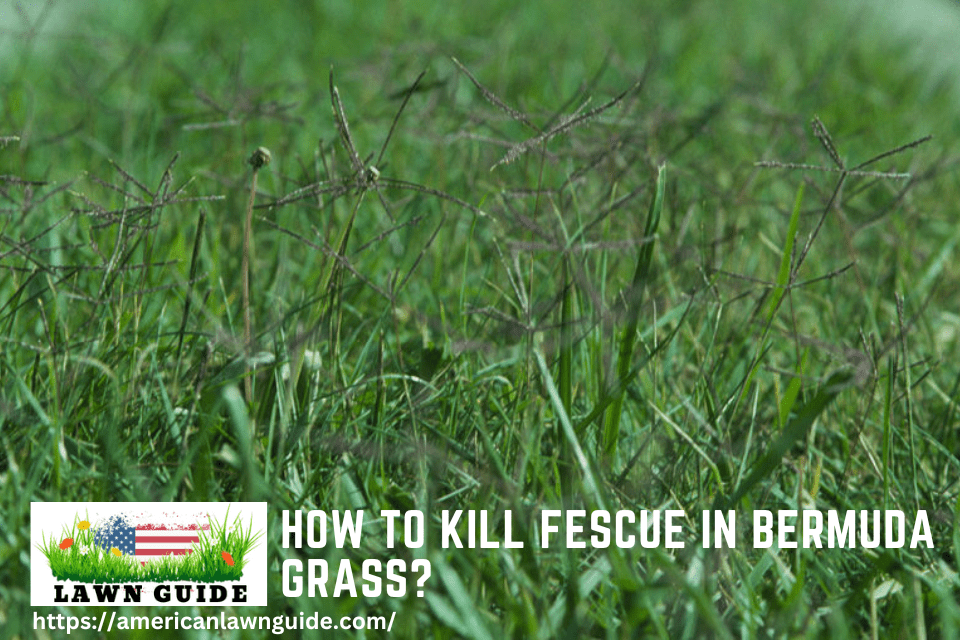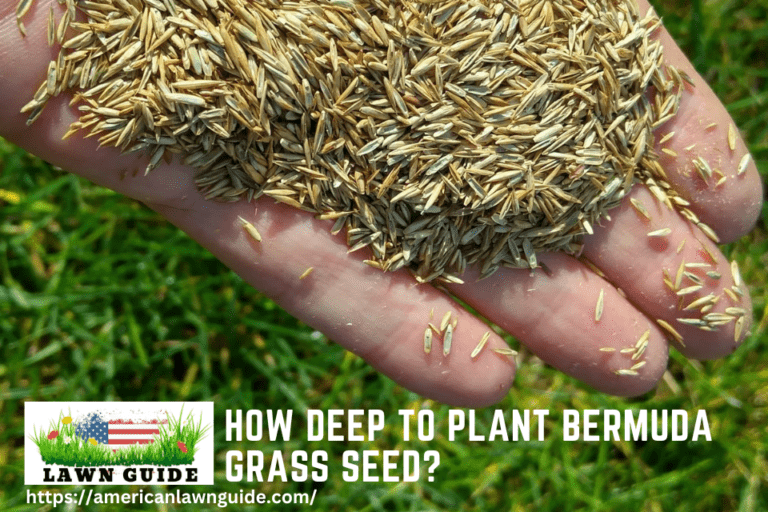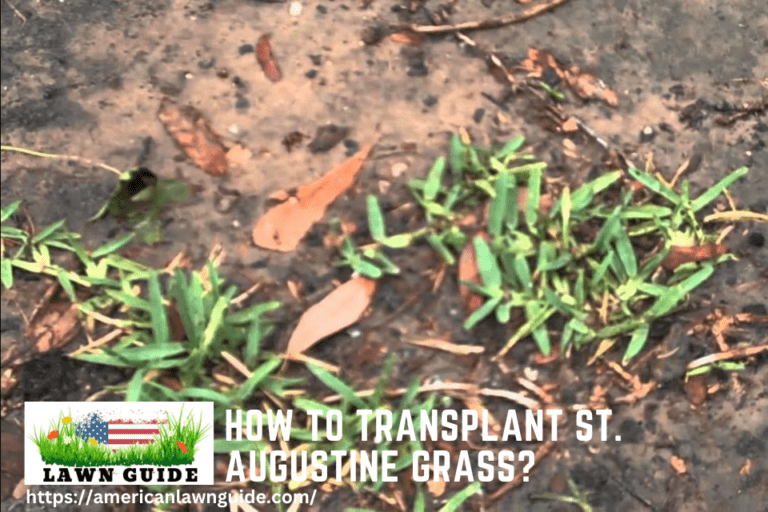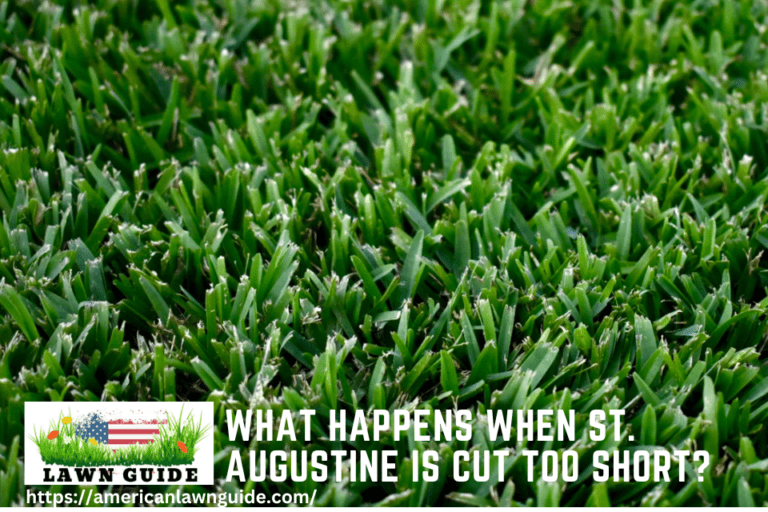To kill fescue in Bermuda grass, use a selective herbicide specifically targeting fescue. Apply it during the growing season for best results.
Fescue and Bermuda grass are common lawn grasses but often compete against each other. Fescue can invade Bermuda grass lawns, disrupting their uniform appearance. Using a selective herbicide is the most effective method to eliminate fescue without harming Bermuda grass.
These herbicides specifically target fescue, ensuring the Bermuda grass remains healthy. Timing the application during the growing season maximizes effectiveness, as the fescue actively absorbs the herbicide. Properly managing your lawn and following herbicide instructions can help maintain a lush, uniform Bermuda grass lawn. Regular monitoring and maintenance are crucial to prevent future fescue invasions.

Identifying Fescue In Your Bermuda Lawn
Fescue can invade your Bermuda lawn and disrupt its look. Identifying fescue early helps manage it effectively. This section will guide you on spotting fescue among Bermuda grass.
Visual Characteristics Of Fescue
Fescue has a distinct appearance compared to Bermuda grass. Look for these visual cues:
- Leaf Texture: Fescue leaves are rough and have a coarse texture.
- Color: Fescue is darker green than Bermuda grass.
- Growth Pattern: Fescue grows in clumps, unlike Bermuda grass.
- Blade Shape: Fescue blades are wider and more erect.
Differences Between Bermuda And Fescue
Understanding the differences between Bermuda and fescue is crucial. Here is a simple table to help you:
| Feature | Bermuda Grass | Fescue |
|---|---|---|
| Color | Light green | Darker green |
| Leaf Texture | Smooth | Rough |
| Growth Pattern | Spreads through runners | Grows in clumps |
| Blade Shape | Narrow and fine | Wider and more erect |
By recognizing these differences, you can easily spot fescue in your Bermuda lawn. Early detection makes it easier to control fescue growth.
Preventive Measures To Avoid Fescue Outbreak
Keeping your Bermuda grass healthy is crucial. Preventing fescue from taking over is key. Follow these steps to maintain a pristine lawn.
Proper Lawn Maintenance Practices
Maintain a consistent mowing schedule. Bermuda grass thrives with regular mowing. Set your mower blade to a height of 1-2 inches. This helps Bermuda grass outcompete fescue.
Water your lawn deeply but infrequently. Bermuda grass prefers this watering method. It encourages deep root growth. Fescue, on the other hand, prefers more frequent watering.
Aerate your soil annually. This improves soil health and allows Bermuda grass to grow stronger. Strong Bermuda grass is more resistant to fescue invasion.
Choosing The Right Herbicides
Select a herbicide that targets fescue but spares Bermuda grass. Read the label carefully. Ensure the product is safe for Bermuda grass.
Apply pre-emergent herbicides in early spring. This prevents fescue seeds from germinating. Follow the instructions for the best results.
Use post-emergent herbicides if fescue is already present. Apply it during the active growth phase of fescue. This usually occurs in cooler months.
Always follow the safety guidelines on the herbicide label. Wear protective gear when applying herbicides.
| Herbicide Type | Application Time | Purpose |
|---|---|---|
| Pre-emergent | Early Spring | Prevent fescue seeds from germinating |
| Post-emergent | Cooler months | Kill existing fescue |
Effective Methods To Eliminate Fescue
Eliminating fescue from Bermuda grass can be challenging. Fescue is resilient and can compete with Bermuda grass for nutrients and space. Here, we will discuss effective methods to eliminate fescue without harming your Bermuda grass. These methods include selective herbicide application and manual removal techniques.
Selective Herbicide Application
Using a selective herbicide is a popular method. This type of herbicide targets fescue while leaving Bermuda grass unharmed. Here are the steps:
- Identify the fescue patches in your lawn.
- Choose an appropriate herbicide labeled for fescue control.
- Follow the instructions on the herbicide label.
- Apply the herbicide evenly on the fescue patches.
- Monitor the area for results.
Ensure you apply the herbicide during the right season. Early spring or late fall is best. This ensures the fescue is actively growing and absorbs the herbicide effectively.
Manual Removal Techniques
Manual removal is another effective method. It requires physical effort but is chemical-free and environmentally friendly. Follow these steps:
- Water the area to soften the soil.
- Use a shovel or garden fork to dig out the fescue.
- Ensure you remove the roots to prevent regrowth.
- Dispose of the fescue properly to avoid spreading seeds.
- Fill the holes with soil and reseed with Bermuda grass.
This method is best for small patches of fescue. It allows you to target specific areas without affecting the entire lawn.

Post-eradication Lawn Care
After successfully removing fescue from your Bermuda grass, the next step is crucial. Proper post-eradication lawn care ensures your Bermuda grass thrives and remains healthy.
Restoring Your Bermuda Grass
Once the fescue is gone, your Bermuda grass may need some help. Follow these steps to restore it:
- Watering: Ensure regular watering to promote new growth.
- Fertilizing: Use a balanced fertilizer to nourish your Bermuda grass.
- Mowing: Mow your lawn at the recommended height for Bermuda grass.
- Aeration: Aerate your lawn to improve soil health and root growth.
- Seeding: If needed, overseed bare spots with Bermuda grass seed.
Long-term Maintenance Strategies
Keeping your Bermuda grass healthy long-term requires consistent care. Here are some strategies:
- Regular Mowing: Mow your lawn weekly during the growing season.
- Proper Watering: Water deeply but infrequently to encourage deep roots.
- Weed Control: Use pre-emergent herbicides to prevent fescue and other weeds.
- Soil Testing: Test your soil annually and adjust pH and nutrients as needed.
- Fertilization Schedule: Follow a fertilization schedule specific to Bermuda grass.
Here is a simple table for a Bermuda grass care schedule:
| Season | Task |
|---|---|
| Spring | Fertilize, aerate, and apply pre-emergent herbicide |
| Summer | Mow weekly, water deeply, and fertilize |
| Fall | Apply post-emergent herbicide and overseed if needed |
| Winter | Reduce watering and mow less frequently |
By following these tips, your Bermuda grass will remain lush and green.
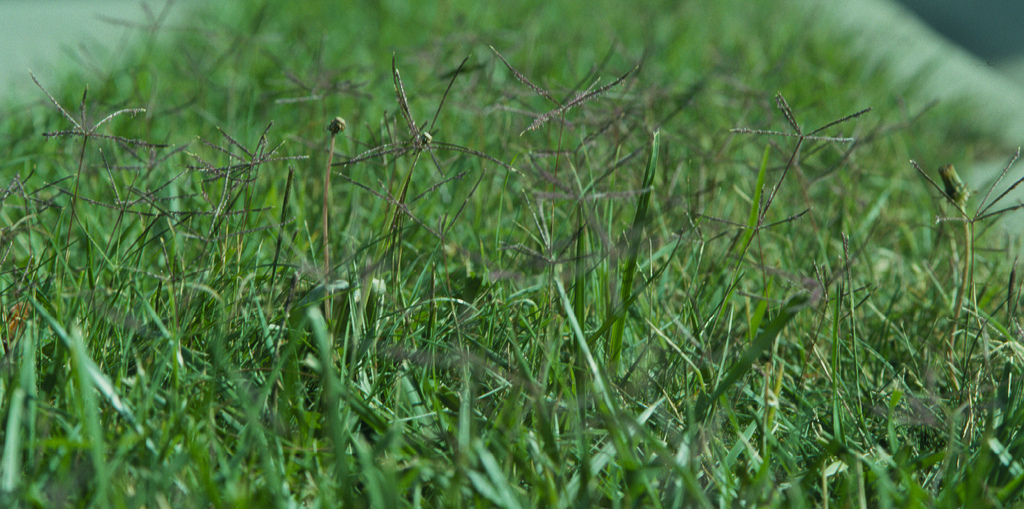
Frequently Asked Questions
How do I kill Fescue in Bermuda grass?
Use a selective herbicide that targets fescue but spares Bermuda grass. Follow the product’s instructions.
Can Fescue And Bermuda Grass Coexist?
No, they have different growth habits and compete for resources. It’s best to eliminate fescue from Bermuda grass.
What Herbicide Kills Fescue In Bermuda?
Glyphosate and selective herbicides like Fusilade II effectively kill fescue without harming Bermuda grass.
When To Apply Herbicide To Kill Fescue?
Apply herbicide during fescue’s active growth periods in spring and fall for best results.
Conclusion
Effectively killing fescue in Bermuda grass requires patience and the right techniques. Follow the steps outlined for the best results. Consistent care will ensure a healthier Bermuda lawn. Always monitor your lawn for any fescue resurgence. With dedication, your Bermuda grass can thrive, free from fescue interference.
{ “@context”: “https://schema.org”, “@type”: “FAQPage”, “mainEntity”: [ { “@type”: “Question”, “name”: “How to kill fescue in Bermuda grass?”, “acceptedAnswer”: { “@type”: “Answer”, “text”: “Use a selective herbicide that targets fescue but spares Bermuda grass. Follow the product’s instructions.” } } , { “@type”: “Question”, “name”: “Can fescue and Bermuda grass coexist?”, “acceptedAnswer”: { “@type”: “Answer”, “text”: “No, they have different growth habits and compete for resources. It’s best to eliminate fescue from Bermuda grass.” } } , { “@type”: “Question”, “name”: “What herbicide kills fescue in Bermuda?”, “acceptedAnswer”: { “@type”: “Answer”, “text”: “Glyphosate and selective herbicides like Fusilade II effectively kill fescue without harming Bermuda grass.” } } , { “@type”: “Question”, “name”: “When to apply herbicide to kill fescue?”, “acceptedAnswer”: { “@type”: “Answer”, “text”: “Apply herbicide during fescue’s active growth periods in spring and fall for best results.” } } ] }
